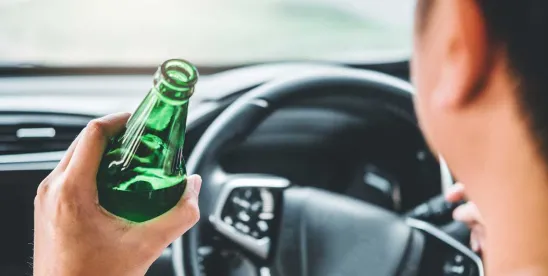Drunk driving is a serious offense in Michigan, with severe penalties even for first-time offenders. Not only does it put the driver at risk, but it also endangers everyone else on the road. The increased chances of accidents caused by impaired driving should be enough to discourage anyone from getting behind the wheel after drinking.
This blog will explain how Michigan defines drunk driving, discuss the penalties that come with it, and raise awareness about the legal consequences of drunk driving in Michigan.
How Does Michigan Define Drunk Driving?
While drunk driving is illegal in all 50 states, each state has its way of defining it. In Michigan, a driver can be considered “drunk” if they meet any of the conditions below:
- Driving while impaired by alcohol, illegal drugs, or even prescribed medications.
- Having a blood alcohol concentration (BAC) of 0.08% or higher.
- Driving with any amount of cocaine or a Schedule 1 controlled substance in their system.
- Drivers under 21 who have a BAC of at least 0.02% or any detectable alcohol.
Most people can tell if another driver is intoxicated, but police officers conduct tests, such as field sobriety tests and breathalyzer tests, to confirm it. If a driver is found to be over the legal limit, they can be arrested for Operating Under the Influence (OUI) or Operating While Intoxicated (OWI).
Legal Consequences of Drunk Driving Accidents
In Michigan, drunk driving is considered an act of negligence. If a driver causes an accident while intoxicated, they can be held accountable for violating state laws, driving recklessly, and being negligent.
Michigan also has a “mini-tort” law, which allows accident victims to seek compensation for damages to their vehicle, depending on who caused the crash.
All drivers must carry no-fault insurance since Michigan is a “no-fault” insurance state. This insurance provides important benefits to those injured in an accident, known as Personal Injury Protection (PIP). These benefits cover medical bills, lost wages, home care, and household services.
Even if you don't own a car, Michigan law still allows certain groups, including bicyclists, pedestrians, and passengers, to receive no-fault benefits if they are injured in an accident. This also includes injured intoxicated drivers.
Is Drunk Driving a Criminal or Civil Case?
Drunk driving can lead to either a criminal or civil case, depending on the scenario:
- Criminal Case: If a prosecutor charges a driver for driving with a BAC over the legal limit, it is a criminal case. The prosecutor represents the public interest, and the goal is to convict the driver and impose penalties like probation or jail time.
- Civil Case: If the goal is to seek compensation for the victim’s injuries (both physical and emotional), it would be a civil case. This is generally where the victim or their family files a lawsuit against the drunk driver for damages.
Conclusion
Drunk driving accidents have caused countless fatalities and injuries. Michigan law gives victims the right to seek justice. On the other hand, if you’ve been drinking and driving, understanding the serious legal consequences might encourage you to think twice before getting behind the wheel.
If you or a loved one have been injured in an accident caused by a drunk driver, call a Michigan drunk driving accident lawyer today to help you seek justice.




 />i
/>i
